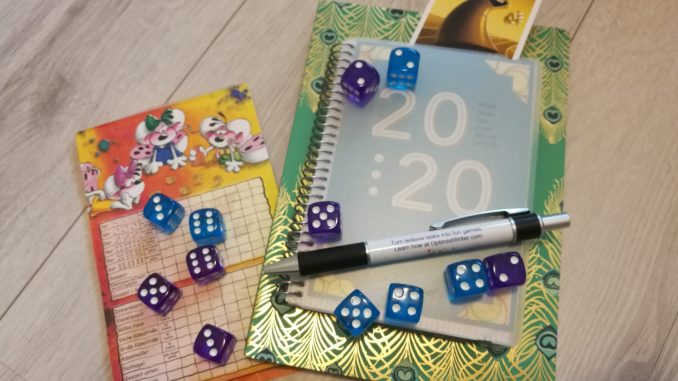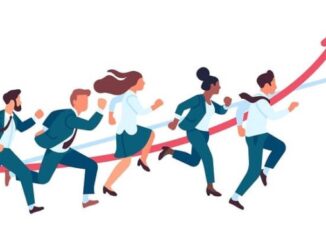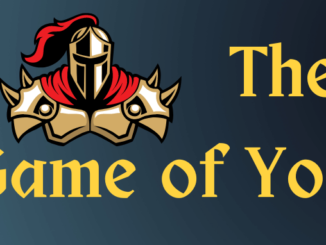
One of the most prominent personalities in gamification, Andrzej Marczewski, wrote in his well-received book Even Ninja Monkeys Like to Play: Unicorn Edition,
“Work is actually very similar to play and even more like games. The main difference is perception.”
I agree with that whole-heartedly. In fact, if we look closer, we will notice that projects, especially those at work, and games have the same components. The following revealing definition of game components by Jane McGonigal in her book Reality Is Broken is known to many:
“What defines a game are the goal, the rules, the feedback system, and voluntary participation. Everything else is an effort to reinforce and enhance these four core components.”
— Jane McGonigal, Reality Is Broken

I am a business owner, so after reading this, I could immediately see parallels between the projects I was working on for my customers, and games. A contract or an agreement, which my customer and I both sign, contains all four of these components. Each project has a goal, there are specific rules, like how I shall do it and by when. There are reporting and evaluation systems in each contract, which is indeed a feedback system even if the progress is not recorded by getting points or badges. And finally, when my client and I sign the contract and make an agreement, we both demonstrate the free will to participate in that project’s “game.”
The same applies to job contracts which lead to your job “games,” with their goals, rules, feedback system (the regular meetings you most likely have with your boss, before or after which you and your employer provide some kind of evaluation of each other), and both sides demonstrating the voluntary participation by signing the employment contract.
So, any project (or task in that project) is already a game. We just rarely see them that way.
Why do we need to see and treat what we do as games? If we don’t want to see, call, and embrace what we are up to as games, then we won’t be able to “play” them and enjoy them in a similar way to games. Only when we become open to seeing our projects as games, can we identify how we can modify their design to make our “project games” exciting and fun.
- The Collaborative-Competitive Paradox of Self-Gamification - 14th January 2022
- Self-Gamification and the Core Gameplay Loops - 21st August 2020
- What playing games and turning life into games can teach us? - 17th April 2020





Victoria Ichizli-Bartels is a significant thought leader and has carved out a unique sector within gamification to educate others.
Thank you very much for your kind words, Michael! It is an exciting field, and I am thrilled to be testing and sharing further the synergy of anthropology, kaizen, and gamification, which are united by Self-Gamification, in various contexts and situations.
Love the article, Victoria. I’m thinking more and more these days that there should be a deliberate and systematic overhaul of the world of work. It doesn’t seem acceptable that we should make people endure jobs they are unhappy in (as research shows that many are), when we have the knowledge (which underlies your self-gamification work, and the work of others in the playful design field), to design work so that it is fulfilling, purposeful and worthwhile. What would be needed, do you think, to extend the work you are currently doing, beyond the ‘self’ to create a framework to design workplaces and work experiences? Is that even possible?
Thank you very much for your comment, Sarah, and the question!
What we need is to increase awareness that each of us is the designer and the player of whatever we are up to and that each project is already a game. The question “How can I (we) adjust the design of my (our) project in such a way – and just with the smallest of changes – that I (we) can’t wait to start “playing” (engaging in) it?” can work wonders.
All we have to do for that is be, first of all, curious scientists. Anthropologists are some of the best role-models for that with their non-judgmental approach to the cultures they study. Each of us is a culture of one, and then together, we make up collective cultures. Then, while being anthropologists, we should allow ourselves to move in small steps, be compassionate toward ourselves through both of that, as well as make and appreciate those steps in a fun way.
Each of us is a designer and the player of our own games. That is the “self”-part.
But in the “group” games at work, at home, and communities, we are co-designers and co-players in the games we share and play together.
Teams of designers and not single designers are often behind many of the successful games and toys, and they enjoy testing/playing their games and playful creations. Any project can adopt this attitude.
Seeing what we do as games can be utterly helpful. And using the game design dictionary can already start the magic. You can re-formulate the goal in your project to be the quest (or the mission). The milestones can become levels, the managers might become game masters (and the role of masters could circulate among players as it is done in some role-playing games), fun challenges can be added, and most importantly, the space for safe (=non-judgmental) testing and gameful “failing” provided.
If a manager wants to gamify their team’s work, then they should start with turning their work and lives into games.
We need to educate managers and whole companies in self-gamification. Non-judgmental seeing, kaizen (including its lean approach), and gamification can work wonders. After all, they provide a simple and efficient turn in attitude because people might suddenly start experiencing fun and joy in the activities they resented previously.
Oh, I could talk for hours on this. 😉 But here’s one more thought: yes, studies show that many people are unhappy in their jobs. But in modern days many people take on a job offer because something interests them in that position. Money is often a factor, but in many cases, it is also what the job is about. So many people take the job because they are interested in the tasks it contains. Then some things happen while they are doing their job that goes against their preferences and makes the job feeling like that is not what they wanted. I think both the employers and employees could improve the design of their games to make the play of these employment, project, project management, team management, and other games together to make them fun and engaging for all involved.
Thank you for your thoughtful reply, Victoria. It has really got me thinking about what would be needed to ‘design’ work for fun and engagement, and you are right, like the approach to any problem, it should start with a scientific curiosity so that the experience which people have in work can be objectively (and, as you say, non-judgmentally) evaluated, before starting to look at how it can be improved.